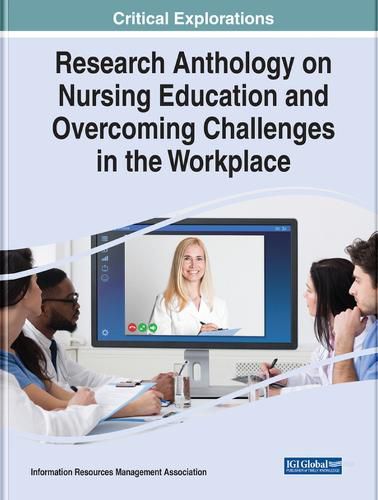Readings Newsletter
Become a Readings Member to make your shopping experience even easier.
Sign in or sign up for free!
You’re not far away from qualifying for FREE standard shipping within Australia
You’ve qualified for FREE standard shipping within Australia
The cart is loading…






This title is printed to order. This book may have been self-published. If so, we cannot guarantee the quality of the content. In the main most books will have gone through the editing process however some may not. We therefore suggest that you be aware of this before ordering this book. If in doubt check either the author or publisher’s details as we are unable to accept any returns unless they are faulty. Please contact us if you have any questions.
Nursing care professionals are an essential part of the medical profession, known for their care and the assistance that they offer to patients. However, nurses must also tackle the challenges of the modern workplace, including the utilization of new technologies, gender inequity, negative workplace environments including navigating exclusionary behaviors such as incivility and bullying and relieving stress and burnout.
As such, it is crucial for nurses, nurse managers, and other medical professionals to remain up to date with the latest education and training techniques and discussions surrounding the significant challenges that nurses face.
The Research Anthology on Nursing Education and Overcoming Challenges in the Workplace is a comprehensive reference book that compiles numerous chapters on the latest training and educational strategies for nurses and discusses challenges facing this branch of the medical field. The anthology presents challenges common within the medical field and techniques used to solve or prevent them as well as nurse perspectives on new medical technologies and their perceived use and performance.
Covering topics such as e-training, ethics, patient safety, burnout, incivility, and more, this text provides essential information for nurses, teachers, care professionals, hospital staff, managers, practitioners, medical professionals, nursing home and care facilities, academicians, researchers, and students.
$9.00 standard shipping within Australia
FREE standard shipping within Australia for orders over $100.00
Express & International shipping calculated at checkout
This title is printed to order. This book may have been self-published. If so, we cannot guarantee the quality of the content. In the main most books will have gone through the editing process however some may not. We therefore suggest that you be aware of this before ordering this book. If in doubt check either the author or publisher’s details as we are unable to accept any returns unless they are faulty. Please contact us if you have any questions.
Nursing care professionals are an essential part of the medical profession, known for their care and the assistance that they offer to patients. However, nurses must also tackle the challenges of the modern workplace, including the utilization of new technologies, gender inequity, negative workplace environments including navigating exclusionary behaviors such as incivility and bullying and relieving stress and burnout.
As such, it is crucial for nurses, nurse managers, and other medical professionals to remain up to date with the latest education and training techniques and discussions surrounding the significant challenges that nurses face.
The Research Anthology on Nursing Education and Overcoming Challenges in the Workplace is a comprehensive reference book that compiles numerous chapters on the latest training and educational strategies for nurses and discusses challenges facing this branch of the medical field. The anthology presents challenges common within the medical field and techniques used to solve or prevent them as well as nurse perspectives on new medical technologies and their perceived use and performance.
Covering topics such as e-training, ethics, patient safety, burnout, incivility, and more, this text provides essential information for nurses, teachers, care professionals, hospital staff, managers, practitioners, medical professionals, nursing home and care facilities, academicians, researchers, and students.